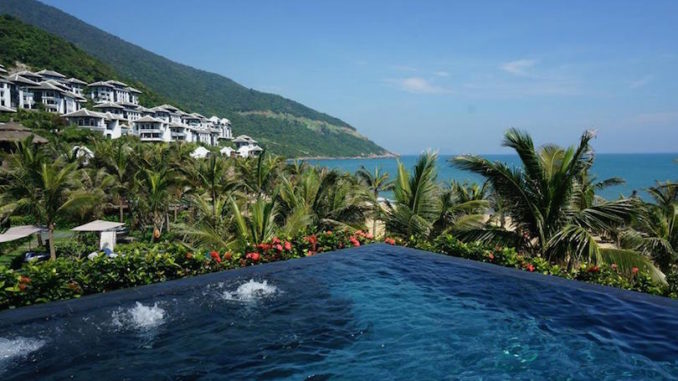
By Phan Le, CEO and Founder VLeisure - 9.30.2019
Property managers have a year-round responsibility to maximize revenue and while it’s happy days during high season, this time of year can be slim pickings for many hoteliers. But it doesn’t have to be this way. To maintain a healthy flow of guests throughout the year hoteliers need to get creative, and it all starts with keeping a handle on your data.
Most hoteliers know how to adjust their strategies in anticipation of upcoming trends, but guest data provides the key that will unlock profitable opportunities during traditionally low periods of the year.
The problem is that hoteliers struggle with their guest data. According to hotel data company Revinate, many admit that it’s difficult to make data meaningful and find the information unstructured. While this may be true in many cases there are great CRM tools available such as Batchbook that allow you to learn more about your clients in one place and build a relationship with them – and that leads on to the all-important client engagement.
Data collection is a powerful tool for hoteliers, and many are properly managing personal data for its long-term value. An email address helps connect guest data across multiple platforms. It’s an important factor for noticing patterns and touch points related to pre-trip, in-stay and post-trip data. Personalized email campaigns that can drive bookings and repeat stays, enabling hotels to have better occupancy rates hand-in-hand with brand loyalty.
While peak season keeps the website and location buzzing, low season is the best time to keep in touch and a dialogue going with your guests. Stay in touch with your clients through text messages and social platforms as well as emails, to maintain brand awareness and generate booking and location excitement throughout the year. Social media enables you to share content that inspires your followers during the low season. It’s also a great way to gather testimonials and customer reviews.
With personalization becoming a priority for many hoteliers, so is the founding need for analytical insights. Hotels can learn to collate across multiple touch points and data profiling to deliver a better customer experience.
This applies all year round but by structuring your data queries to focus on key periods that need a boost and using the best revenue management tools you can act with confidence.
Get Personal
According to MarketingProfs, email marketing is one of the most effective channels for over 5o% of marketers, coming second only to a hotel’s direct website. An email address helps connect guest data across multiple platforms. It becomes an important factor for noticing patterns and touch points related to pre-trip, in-stay and post-trip data.
A report from SiteMinder shows that almost 80% of hoteliers believe that prioritizing guest personalization and experience would bring the most success to them, followed by branding at 67%.
Keep your guests informed. Let them know about your latest deals and offerings. You’ll gain deeper insights into the behaviour of your clients and better understand what motivates them. You can use this data to send targeted off-season deals.
Ask customers to share their suggestions, stories and experiences and what they want next from their visit. The key here is to keep a dialogue going with your guests and tap into what inspires them to book.
Targeted Off-Season Promotions
This is crucial. Use knowledge about your customers—likes and dislikes—to promote specific destinations, hotels and experiences during low seasons, particularly when it comes to special discounts. This is your area and you know it better than anyone, which is a major advantage when selecting and recommending local activities, restaurants and experiences.
If your hotel proposes a plan that includes accommodation, a tour, and some places in the city where you can beat the crowds and take the best pics, it will make a difference. Destination content technology companies such as Smartvel provide local information in real time. The information they provide enables hotels to enhance the customer experience, allowing customised plans for travellers but also opportunities and scope to negotiate a fair kick back from subsequent bookings and reservations.
Offering special deals to loyal customers—additional room nights, discounts on transfers, tickets and experiences is a great way to offset seasonal lows. Use festivals, sporting events, concerts and movie promotion shows and pop culture tie-ins to fill the sales gap.
The tours and events market is huge and has become a multi- billion dollar global industry. By positioning the hotel as the focal point of the destination and offering this as part of your product, you will increase revenue and room occupancy.
The prices of ancillaries can be used to recoup the difference in hotel room rates. Creating exciting content on social media such as early bird offers, and cleverly planned hashtag campaigns can help turn an audience into paying customers.
Smart Advertising and MICE
Show your property in different ways. The hospitality industry in particular thrives on this. Suite-level rooms for business travellers for an off-season low budget trip can be an effective marketing tactic.
Business travellers are not influenced by seasonal trends and this helps the tourism sector continue to thrive all year around.
The MICE sector is extremely profitable. The combination of meetings, incentives, conventions and exhibitions, is now an integral part of the global hospitality industry. It stood at $752 billion in 2016 and is projected to grow at 7.5 per cent in the next five years.
Targeting delegations can help even smaller operators earn a healthy profit, as these groups, particularly the smaller ones, often tend to look for unique and tailor-made services in terms of accommodation and tours. More travellers are combining work with leisure activities in their business destination, which again presents a great opportunity for travel agents and tour operators to keep sales going during off-seasons.
Innovative strategies to maximize revenue is key for hoteliers, destination management companies and travel agencies. A marketing framework is necessary in order to maximize the scale of profitability during low season. These are sales gaps which with clever marketing strategies can actually turn seasonal lows into highs.
 Phan Le, CEO and Founder VLeisure, a Vietnam-based B2B global travel network platform that empowers agencies to manage and distribute travel products and services to their online partners. We have access to over 50,000 hotels across the globe and are big advocates of maintaining profit throughout the year. With our global network of travel suppliers, you can now access a rich product database.
Phan Le, CEO and Founder VLeisure, a Vietnam-based B2B global travel network platform that empowers agencies to manage and distribute travel products and services to their online partners. We have access to over 50,000 hotels across the globe and are big advocates of maintaining profit throughout the year. With our global network of travel suppliers, you can now access a rich product database.
Are you an industry thought leader with a point of view on hotel technology that you would like to share with our readers? If so, we invite you to review our editorial guidelines and submit your article for publishing consideration.
